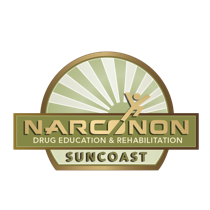The Importance of Proper Nutrition and Sleep During Recovery

Individuals arriving at drug rehabilitation treatment are often sleep-deprived and malnourished. Drugs typically take priority over basic needs like food and rest during addiction. Finances are driven by the urge to purchase the addictive drug, limiting access to food.
Additionally, a hectic lifestyle and the effects of the drugs itself can interfere with sleep.
Addressing proper nutrition and sleep is a critical component of a successful recovery.
Malnutrition Often Accompanies Addiction
Drug addicts often live stressful and chaotic lives. Scarcity and mismanagement of money are attendant with the lifestyle. The nature of addiction and the stress to obtain the drug create a cycle where the drugs take precedence over food. This leads to poor nutritional choices and inadequate eating habits.
When drug abusers do eat, their food choices are not likely determined by nutritional value but by availability and ease of consumption. Cheap, sugary, and easy to prepare (processed foods) are the culinary preference.
Under-eating and consuming junk food can lead to deficiencies in essential vitamins and minerals. The result is bodily dysfunction and feeling bad, adding to the desire to continue to take drugs to feel better.
But there are other contributing factors to malnourishment in drug abusers. Interestingly, according to a research article published by the NIH, abusers of certain drugs tend to develop particular dietary habits and food preferences.
Cocaine users typically eat one meal late at night, high in processed carbohydrates and low in fruits and vegetables.
Opiate abusers frequently eat empty calories and prefer sweet food, high in sugar and low in nutrition.
All of these eating patterns lead to vitamin and mineral deficiencies.
But there is more.
Body Function and Malabsorption of Nutrients
Additionally, drugs interfere with body functions, especially how the body metabolizes food. This can lead to malabsorption of nutrients and vitamins. For example, opioid users tend to have constipation and weight loss, while alcohol abuse leads to damage to the stomach lining.
As a result, nutrients, such as vitamin D, B vitamins, iron, and amino acids, are poorly absorbed in the body of drug abusers.
In summary, poor diet, bad eating habits, and metabolic dysfunction attendant with addiction can lead to deficiencies in the essential vitamins and minerals.
A holistic approach to recovery from addiction would include providing nutritious meals and vitamin and mineral supplementation.
Sleep Patterns that Accompany Drug Abuse
Drug abusers are often sleep-deprived. There is difficulty falling asleep and staying asleep. This is likely due to the stress of the lifestyle and the damage done by the drugs. Also, those coming off drugs have difficulty sleeping. In fact, Science Direct reports that 70-74% of those in addiction recovery report sleep troubles.
Therefore, it follows that a healthy sleep schedule, in addition to a healthy diet, is another essential component of successful drug treatment.
Healthy Diet and Quality Sleep are a Part of Successful Drug Treatment
Incorporating specific vitamins into the person's daily routine can alleviate symptoms of withdrawal, making the process more comfortable. For example, studies show that vitamin C can help reduce cravings and withdrawal symptoms for opioid users. Nutrition can also affect sleep. According to the American Society of Nutrition study identifies the relationship between poor sleep and bad nutrition.
The study suggests that taking nutrients such as A, D, and B1, magnesium, niacin, calcium, zinc, and phosphorus could benefit those who have poor sleep (described as “short sleep duration”).
Narconon Drug Free Withdrawal
Here at Narconon, we use a process known as Drug-Free Withdrawal– implementing a holistic approach to recovery that includes a balanced diet and supplementation of essential vitamins. The comfortable and stress-free environment at Narconon Suncoast supports quality sleep throughout the drug-free withdrawal process.
The term “Drug-Free” can sound concerning to those worried about the severity of withdrawal symptoms. However, the nutrition is flanked by techniques that help ease uncomfortable and even painful symptoms of withdrawal. Our compassionate staff work diligently to ensure the process is as fast and comfortable as possible for each individual.
In fact, 1000s have successfully gone through Narconon’s drug-free withdrawal process, completed the Narconon Program, and are now substance-free – for life.
References:
- Mahboub, Nadine. Rizk, Rana. Karavetian, Mirey de Vries, Nanne. “Nutritional status and eating habits of people who use drugs and/or are undergoing treatment for recovery: a narrative review.” Nutrition Reviews.NIH. Sept. 25, 2020
- Yaugher, Ashly. Atisme, Kandace. Murza, Gabriella. “Diet, Nutrition and Substance Use Disorder.” Utah State University, Heart Extension https://extension.usu.edu/heart/research/diet-nutriton-and-substance-use
- Mary Beth Miller, Aesoon Park. “Bidirectional associations between sleep and addiction across populations: Introduction to the special issue.” Addictive Behaviors, Science Direct. September 2023.
https://www.sciencedirect.com/science/article/abs/pii/S030646032300117X
- Erica Zelfand. “Vitamin C, Pain and Opioid Use Disorder” June 19, 2020. NIH. Pub Med Central 1, https://pmc.ncbi.nlm.nih.gov/articles/PMC7572147
- ASN staff. “Study Links Poor Sleep with Poor Nutrition.” American Society for Nutrition. June 9, 2019. https://nutrition.org/study-links-poor-sleep-with-poor-nutrition


